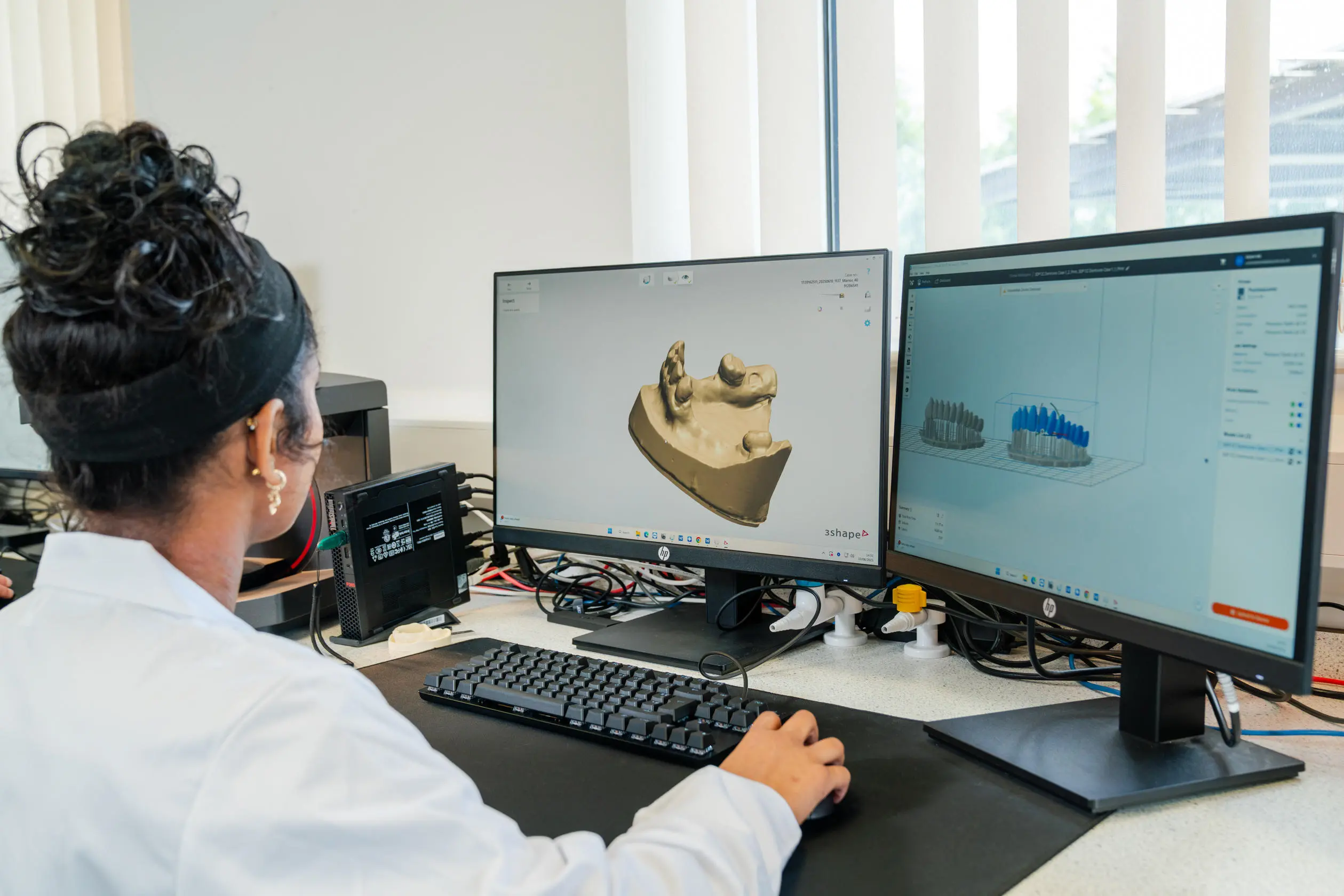What is a clinical dental technician?
A clinical dental technician is a registered dental professional who provides removable dental prosthetics directly to patients. They combine technical expertise, anatomical knowledge and patient care to create functional, comfortable and aesthetically pleasing dental appliances.
Clinical dental technicians often work closely with dentists, dental hygienists, and laboratory technicians to provide high-quality care.
What does a clinical dental technician do?
Clinical dental technicians provide a range of services, including:
- Designing, creating and fitting dentures and other removable dental appliances.
- Assessing patients’ oral health and prosthetic needs.
- Advising patients on care, hygiene and appliance maintenance.
- Using advanced digital technologies such as CAD/CAM, intraoral scanning and 3D printing.
- Collaborating with dental teams to manage complex cases, including maxillofacial prosthetics.
Why become a clinical dental technician
Choosing a career as a clinical dental technician offers a unique combination of technical and clinical work.
Reasons to become a clinical dental technician include:
- Work directly with patients to improve their quality of life.
- You can choose to work in private practice, hospitals, labs or specialist roles.
- Strong earning potential depending on experience.
- This new niche area of dentistry is in huge demand, with around 15 million people currently wearing a full or partial denture.
Skills needed to become a clinical dental technician
Successful clinical dental technicians combine practical and interpersonal skills:
- Precision and manual dexterity - Working with small tools and delicate materials to craft accurate dental prosthetics.
- Attention to detail - Even tiny imperfections in dentures can affect comfort and function. You'll need an eye for detail needed to create a high-end aesthetic.
- Communication - Listening to patients’ needs and explaining treatment options clearly.
- Problem-solving - Adjusting dentures for the perfect fit and troubleshooting any problems that they may have.
- Patience and empathy - Many patients feel self-conscious about dentures, so a caring approach can help them feel better.
- Teamwork - Collaborating with dentists, hygienists and lab technicians.
- Time management - Balancing multiple cases at a time.
Career path after qualification
Qualifying as a clinical dental technician gives you lots of opportunities to work in dentistry. Many clinical dental technicians split their work across various clinics, hospitals and laboratory settings to create a job that suits them.
Where next?
- Article
How to become a dentist
